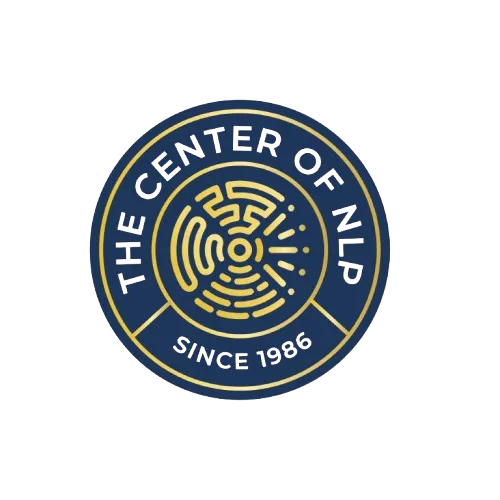
NLP and Mindfulness: Enhance Personal Growth
By Brigitta Hoeferle
In the journey towards achieving greater emotional well-being and effectiveness in both personal and professional realms, the synthesis of Neuro-Linguistic Programming (NLP) with Mindfulness-Based Stress Reduction (MBSR) offers a transformative pathway. This integration leverages the strengths of both modalities, enhancing the depth and breadth of their benefits.
Here, I explore how specific NLP strategies can enhance MBSR practices and the positive impacts these can have on an individual's life.
The Synergy of NLP and MBSR
MBSR is a well-established approach that emphasizes mindfulness meditation to help individuals cope with stress, pain, and illness. It encourages participants to bring greater awareness to their moment-to-moment experiences, fostering a non-judgmental and compassionate stance towards themselves and their circumstances.
On the other hand, NLP focuses on the linguistic and cognitive processes that underpin human experience, offering tools and techniques to understand and direct our thoughts and behaviors more effectively.
The fusion of these disciplines enables a robust framework for personal and professional growth. By integrating NLP techniques into MBSR, individuals can enhance their ability to reframe and recalibrate their experiences and reactions, leading to more profound and sustained changes.
Enhancing Mindfulness with NLP Strategies
Reframing Negative Thoughts:
NLP teaches reframing—a powerful technique for altering the meanings we assign to our experiences. By applying reframing within an MBSR context, practitioners can shift their perspective on stressors from a negative viewpoint to a more empowering one, thereby reducing the psychological impact of stress.
Anchoring Positive States:
NLP’s anchoring technique involves associating internal states or feelings with external triggers. In MBSR, this can be used to recall a state of mindfulness or relaxation more readily. For instance, touching a particular finger could become a trigger for evoking calmness, aiding individuals in accessing serenity during stressful times.
Enhanced Goal Setting:
Goal setting is fundamental in NLP and can be used to set intentions or aspirations within mindfulness practice. Clear, well-defined goals about what one wishes to achieve through mindfulness—such as increased patience or better emotional regulation—can guide the practice and measure progress more effectively.
Impact on Personal and Professional Life
Personal Life: Integrating NLP strategies into MBSR can profoundly impact personal life by improving emotional intelligence and resilience. Enhanced self-awareness and better management of emotional states lead to improved relationships and a healthier mental state. Individuals become more adept at handling life's ups and downs, fostering a more fulfilling and balanced life.
Professional Life: In the professional realm, the combined approach helps in the development of leadership skills, such as effective communication, empathy, and conflict resolution. Professionals learn to stay centered and composed, even in high-stress environments, leading to better decision-making and increased productivity.
Detailed Support of NLP to MBSR
1. Sensory Acuity and Calibration
NLP emphasizes the importance of sensory awareness, which aligns well with the mindfulness practice of observing one's current state without judgment. NLP teaches individuals to become more aware of their own and others’ physiological changes.
In the context of MBSR, this heightened sensory acuity can help practitioners become more attuned to subtle shifts in their emotional or physical state during mindfulness exercises, thereby enhancing the depth of their practice.
2. Meta Model Questions
The Meta Model in NLP is a set of linguistic tools that helps clarify vague language and thinking by encouraging the specification of thoughts and speech.
Applying Meta Model techniques in MBSR can help individuals more precisely identify their thoughts and feelings during mindfulness sessions. This specificity can aid in uncovering hidden beliefs and assumptions that contribute to stress, allowing for a clearer focus on reality and a reduction in negative thinking patterns.
3. The Milton Model
Conversely to the Meta Model, the Milton Model uses artfully vague language to induce a trance or deeper state of relaxation in therapy. In MBSR, similar patterns can be used to facilitate deeper states of meditation and relaxation, helping individuals to let go of conscious control and more easily enter into a meditative state, which can be particularly beneficial for beginners who may struggle with achieving initial mindfulness.
4. Submodalities
In NLP, submodalities refer to the fine distinctions we make about our internal representations (images, sounds, physical feelings) of experience.
For instance, altering the brightness, distance, or volume in our mental imagery can change how we feel about them. MBSR practitioners can use submodality adjustments to manage distressing thoughts or painful memories more effectively during mindfulness practices, reducing their emotional impact and facilitating a more tranquil state of mind.
5. Modeling
Modeling is a core principle of NLP, which involves observing and mapping the successful behaviors and thought patterns of others to acquire a skill. MBSR participants can use modeling to adopt more effective mindfulness practices by observing the habits of adept meditators. This might include mimicking posture, breathing patterns, or mental strategies that facilitate deeper meditation.
6. Timeline Techniques
NLP uses various techniques to work with an individual's perception of time to heal emotional traumas from the past or visualize positive future outcomes. In MBSR, similar techniques can be applied to help participants move through past traumas with more mindfulness and less emotional turmoil or to cultivate a positive vision for the future that supports current mindfulness practice.
Integrating NLP into MBSR
Integrating NLP into MBSR provides a powerful set of tools that complement the traditional focus on mindfulness, breath work, and meditation. These strategies not only enhance the practice itself by providing new ways to engage with and manage one’s mind and emotions, but they also deepen the overall impact of mindfulness on personal growth and stress reduction.
By blending these approaches, practitioners can achieve a more nuanced and effective practice that supports both their immediate well-being and their long-term personal and professional development.
Conclusion
The convergence of NLP and MBSR not only enhances each approach's effectiveness but also offers a comprehensive toolkit for dealing with life's complexities.
This integrated approach promotes a deeper understanding of the mind-body connection and equips individuals with practical skills to manage stress, foster well-being, and achieve greater success in all areas of life.
As we continue to navigate the challenges of the modern world, the synergy between NLP and MBSR stands as a beacon of hope, guiding us toward more mindful, productive, and compassionate lives.
Check Out For more:


